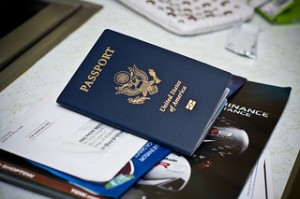A Model of Government Efficiency (Not a Typo)
Ray Fisman and Tim Sullivan use the example of New York City’s surprisingly efficient passport office to explore an interesting question: “Why do some government offices perform well and others poorly, even when they’re providing the same services and working with comparable resources?” Fisman and Sullivan think it’s all about the management:
There’s an emerging body of research that chalks up these productivity gaps to the all-too-human ways that different companies (and divisions within a single organization) are managed. The fact that management matters—a lot—shouldn’t come as a shock to anyone who has ever worked under a good manager and also a bad one: Good managers coach, listen, support, and make their employees feel like they’re making progress. Bad ones don’t—often in uniquely horrible ways. And if this is true at for-profit companies, why wouldn’t it be true for branches of the government?
At the Hudson Street New York Passport Office, the management is Michael Hoffman:
But Hoffman also has a great deal of discretion in how the place is run: the layout of the various waiting rooms, the particular queues that move people through the application process (Hoffman has chosen four: one for appointments, one for walk-ins, a special-requests line, and one for applicants with complicated cases), and the color of the walls (they’re currently a dull institutional blue; he’s planning on painting them a cheerier yellow). And it’s his job to motivate and manage his workforce. He promotes high-performing agents and disciplines—or in extreme instances even fires—lower-performing ones. (Yes, while it isn’t easy, it is in fact possible to fire federal employees.) He’s been given enough autonomy within the context of a federal bureaucracy to make the passport experience in New York terrible or fantastic, and he’s achieved the latter. Hoffman, a modest and unassuming mid-level bureaucrat with a fondness for baseball memorabilia (a bat and a row of balls have pride of place in display cases behind his desk), has just done a great job of using his power to make the office run really well.
Related: a Q&A with Fisman and Sullivan on their book The Org: The Underlying Logic of the Office.


Comments